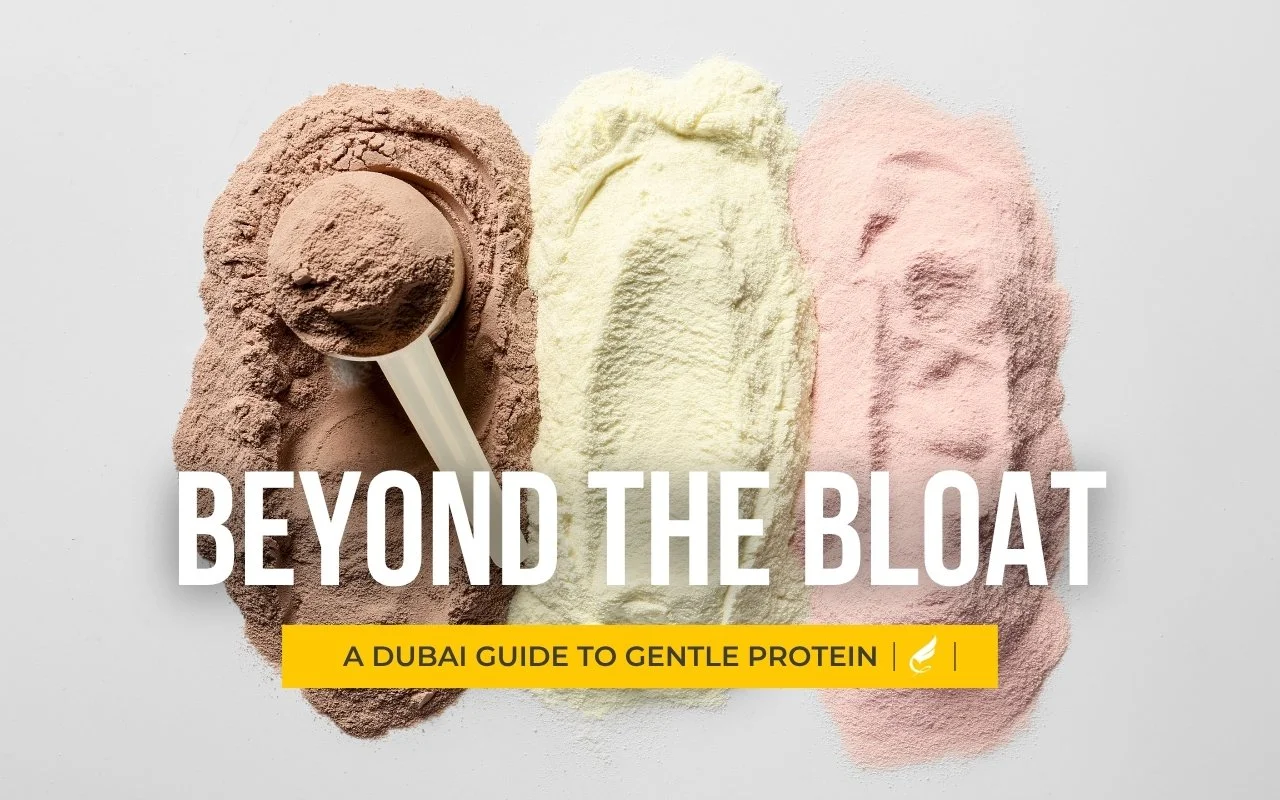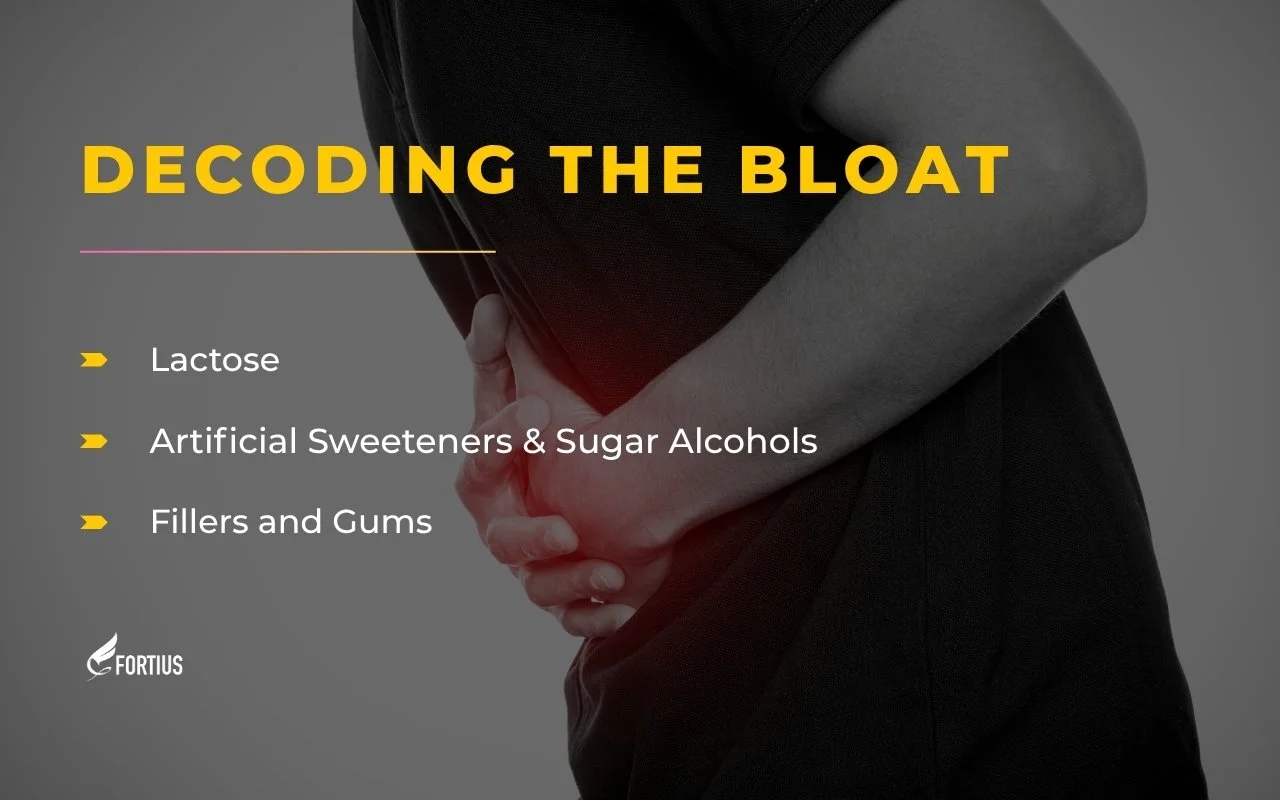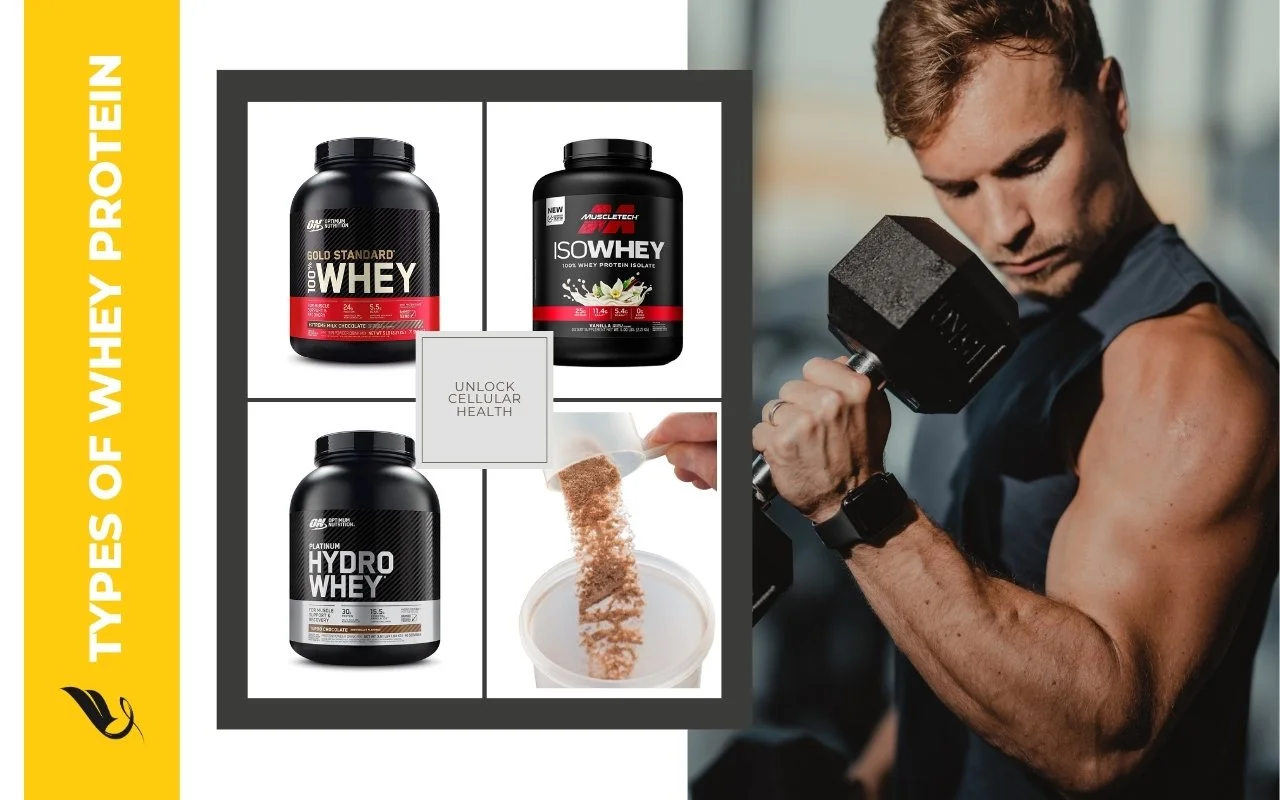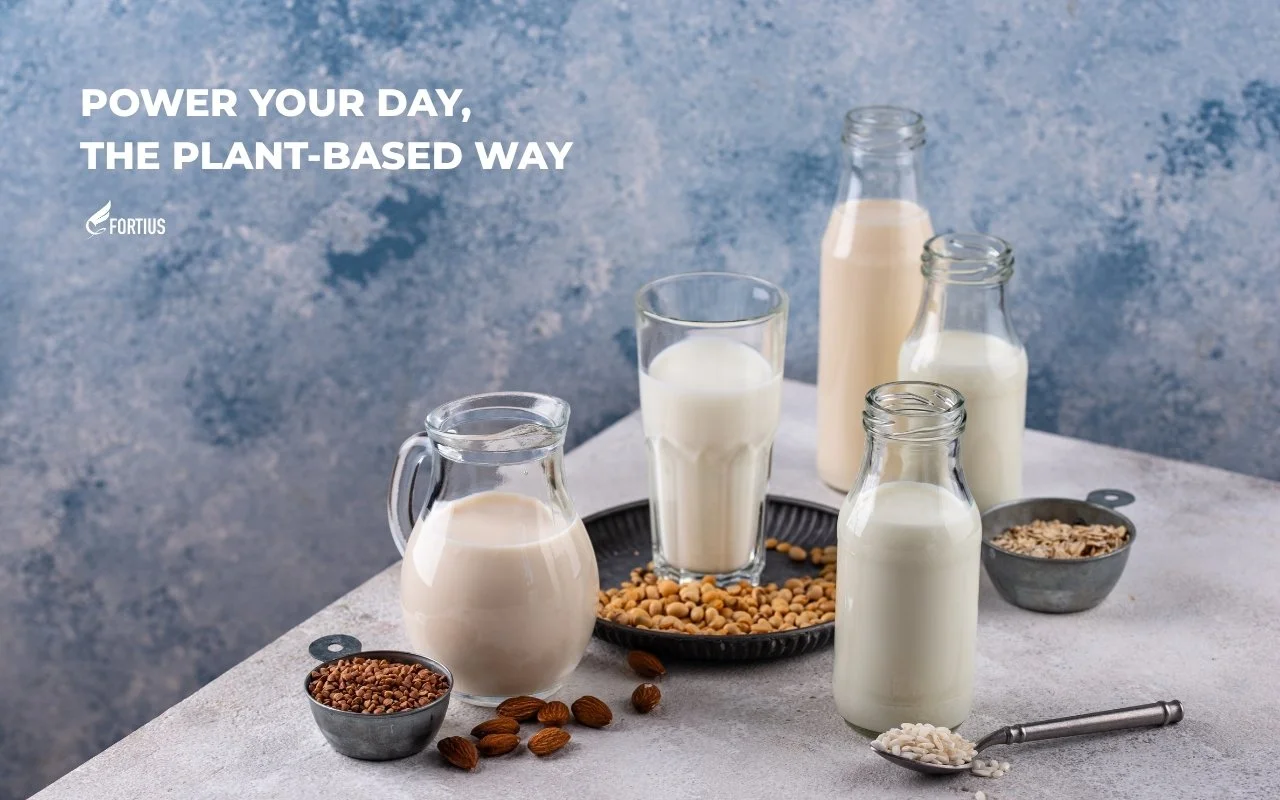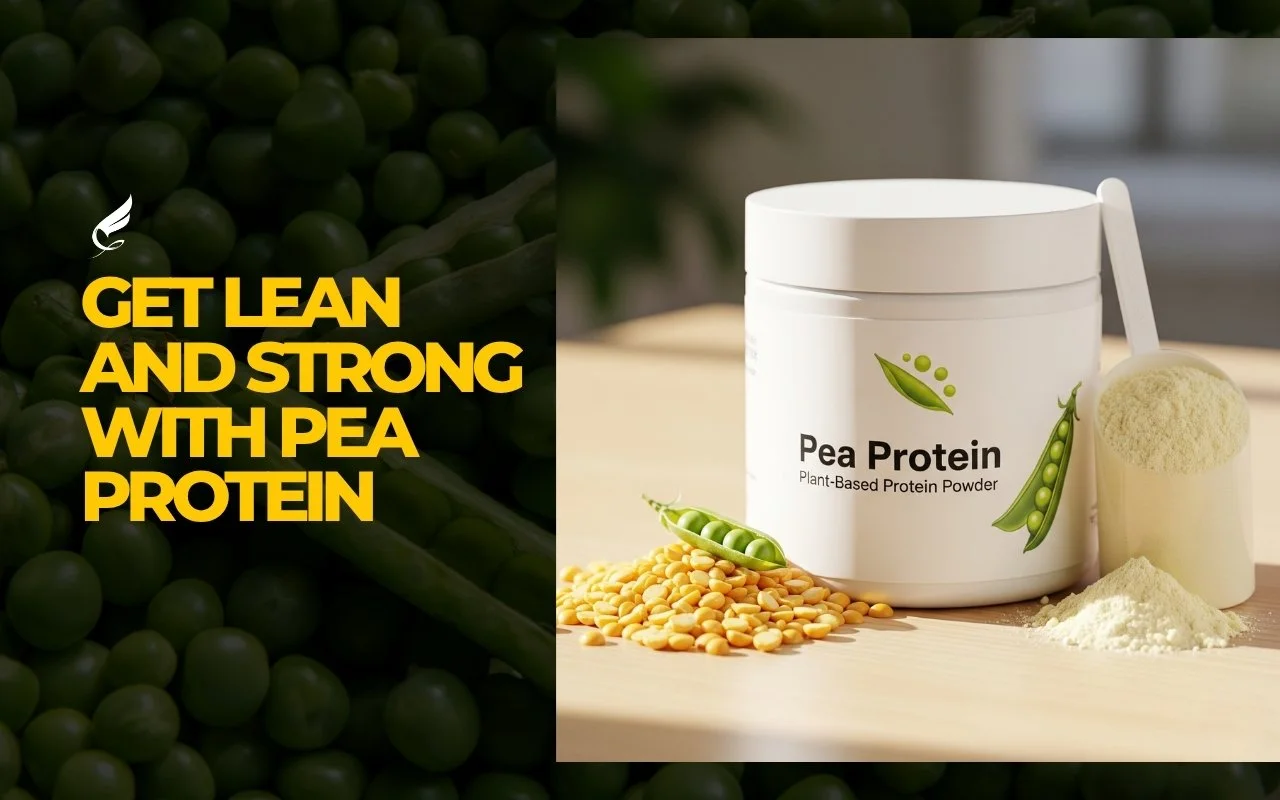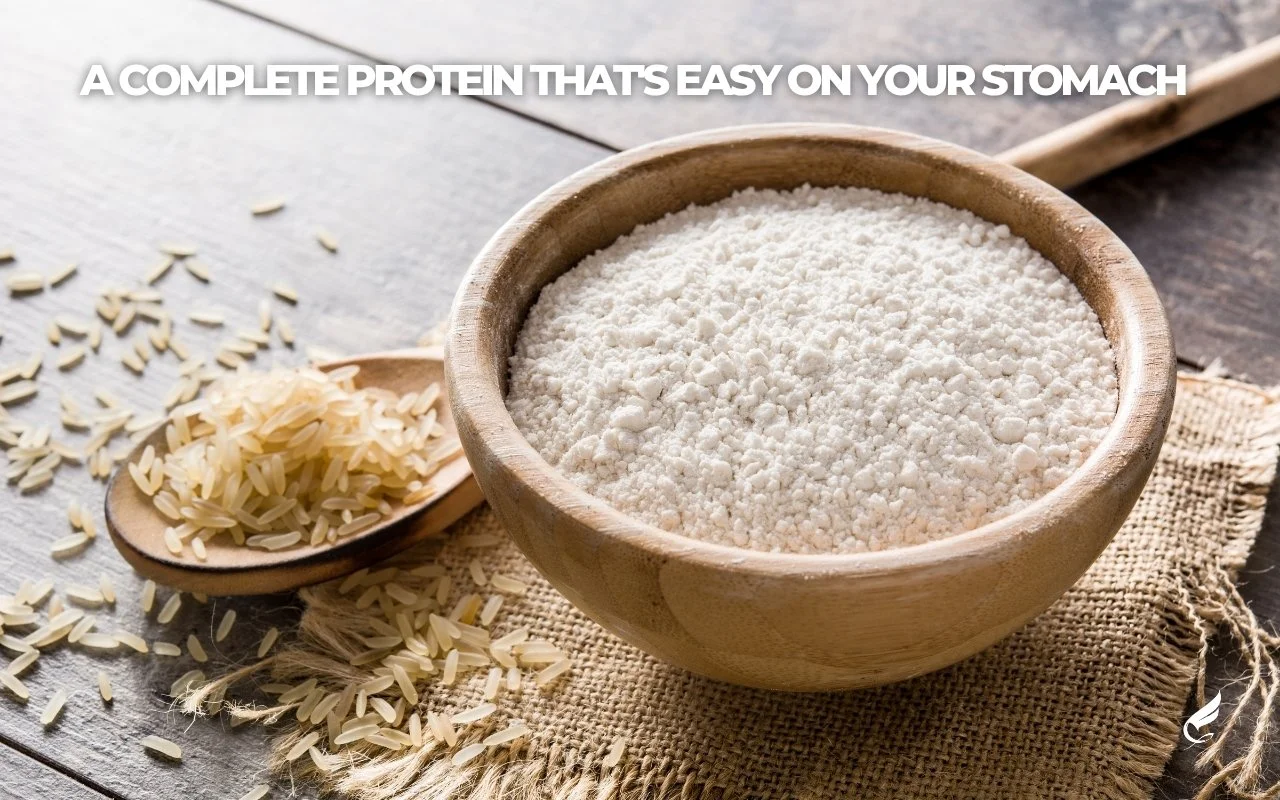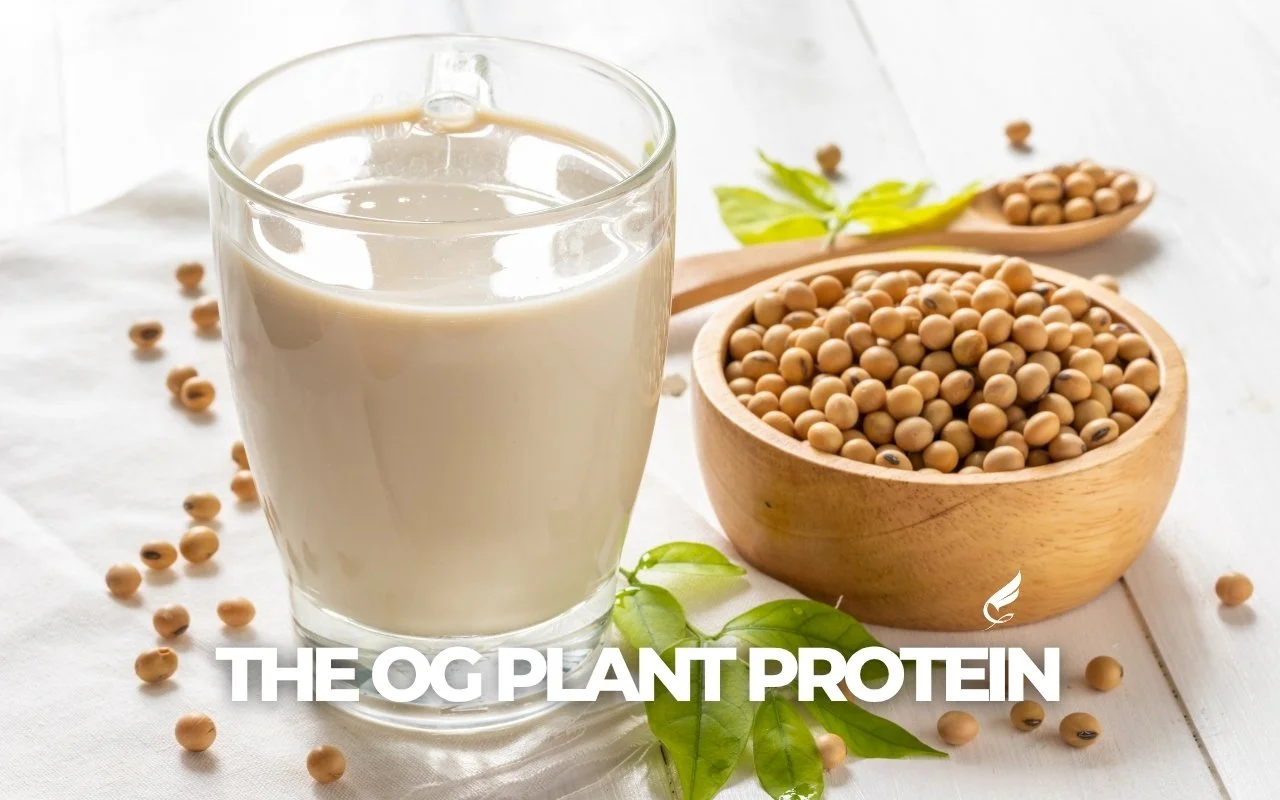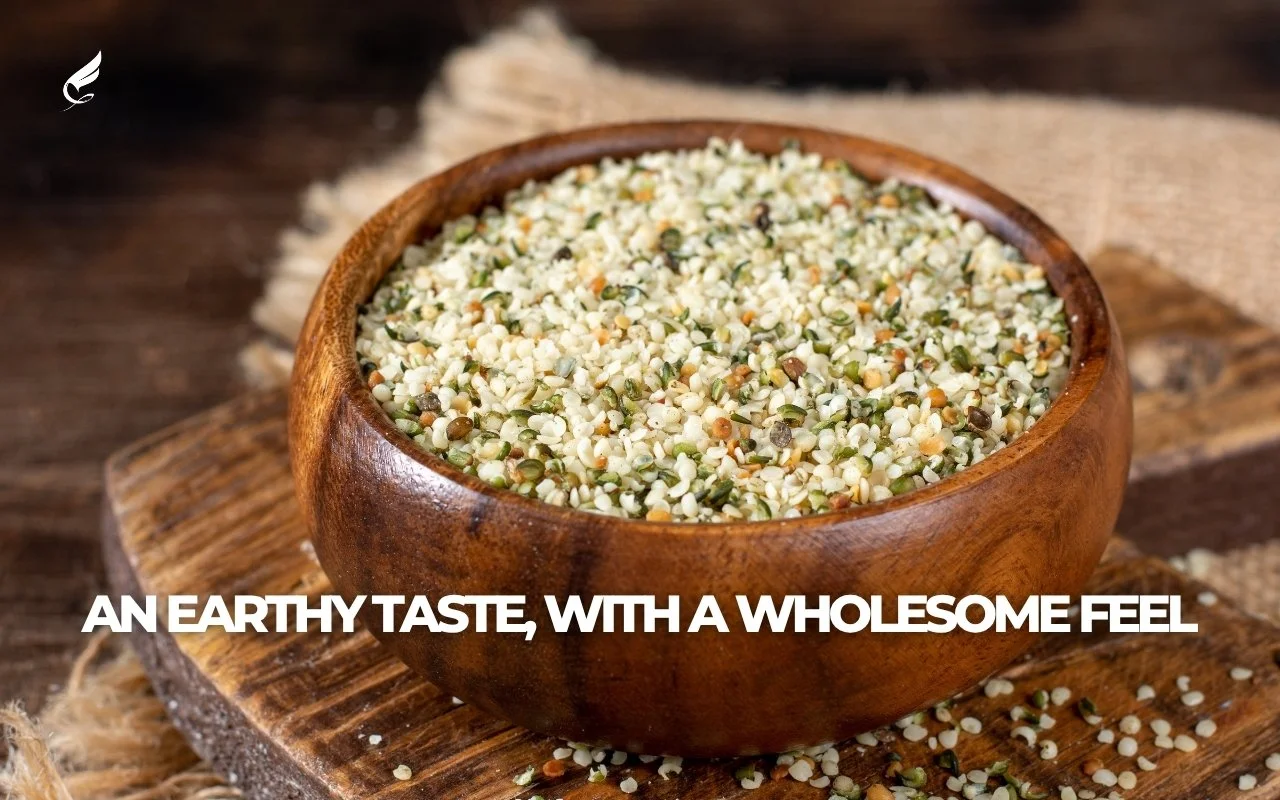The Best Protein Powders for Sensitive Stomachs in Dubai: A Guide to Whey, Casein, and Plant-Based Options
Protein powder is one of the most effective and convenient supplements you can use to support your fitness goals. For athletes, bodybuilders, and anyone with an active lifestyle, it’s a powerful tool for hitting your daily protein intake, supporting muscle building, and speeding up post-workout recovery.
But for many, there's a common, frustrating side effect: digestive distress. If you've ever experienced bloating, gas, or an upset stomach after a protein shake, you are not alone.
The good news is that the problem is often not the protein itself, but the type of powder you are using. The supplement market in Dubai is vast, and choosing the right product for your body is crucial for your health and performance.
This is your definitive guide to finding the best protein powder for sensitive stomachs. We'll break down the different types, explain what causes the issues, and help you make an informed choice.
Why Does My Protein Powder Cause Bloating?
Before we find the solution, it's important to understand the cause. The most common culprits behind poor digestionare:
Lactose: This is the primary sugar found in milk. Many adults have a degree of lactose sensitivity, and whey protein concentrate, the most common type of protein powder, is high in lactose.
Artificial Sweeteners & Sugar Alcohols: To make their products taste good without adding sugar, many brands use artificial ingredients like sucralose or sugar alcohols like xylitol. These can be difficult for some people to digest and are a major cause of bloating.
Fillers and Gums: Thickeners like xanthan gum are often added to improve texture but can cause digestive upset in sensitive individuals.
A Guide to Protein Powder Types
Understanding the different types of protein is the key to finding one that works for you.
1. Whey Protein: The Gold Standard
Whey is a high-quality protein derived from milk. It's rich in all the essential amino acids needed for muscle repairand growth. Its benefits for recovery and muscle growth are well-documented. However, not all whey is created equal.
Whey Concentrate: This is the most basic form. It contains the most lactose and fat, making it the most likely to cause issues for sensitive stomachs.
Whey Isolate: This is a more filtered version. The process removes most of the lactose and fat, leaving a product with a higher protein content that is much easier to digest. Its rapid absorption makes it ideal for rapid muscle recovery after a workout. For most people with mild sensitivity, switching to a high-quality whey isolate is the solution.
Whey Hydrolysate: This is the most processed form, where the protein has been "pre-digested" into smaller peptides for the fastest possible absorption. It is the easiest on the stomach but is also the most expensive.
2. Casein Protein: The Slow-Release Option
Casein is the other protein found in milk. Unlike whey, it digests very slowly, providing a sustained release of amino acids over several hours. This makes it an excellent option for a shake before bed to support muscle repair overnight. However, it is high in lactose and can be problematic for those with dairy sensitivities.
3. Plant-Based Proteins: The Dairy-Free Alternatives
For those who are lactose intolerant or follow a vegan diet, plant-based protein powders are an excellent choice.
Pea Protein: A great option that is rich in branched-chain amino acids (BCAAs), which are crucial for muscle gain, and is generally easy to digest.
Rice Protein: Often combined with pea protein to create a complete amino acid profile. It's also hypoallergenic and gentle on the stomach.
Soy Protein: Soy is a complete protein, but it's a more controversial choice due to debates about its effects on hormones. For those without a soy sensitivity, it remains a viable option.
Hemp Protein: A good source of protein, fiber, and healthy fats, but it has a more "earthy" taste that not everyone enjoys.
The Fortius Recommendation
For a non-vegan client with a sensitive stomach, our recommendation is always to start with a high-quality Whey Protein Isolate from one of the trusted brands that uses minimal ingredients and natural sweeteners like stevia. One scoop post-workout can significantly aid in recovery.
For our vegan clients or those with a true dairy allergy, a blend of pea and rice protein is the gold standard. This combination provides a complete amino acid profile that is comparable to whey and is typically very easy to digest.
Conclusion: Read the Label, Listen to Your Body
Choosing the right protein powder is a crucial step in your nutrition plan and overall fitness journey. Don't let a bad experience with a low-quality product deter you. By understanding the different types and reading the ingredient label to avoid lactose and artificial additives, you can find a powder that helps you achieve your fat loss or muscle gain goals without the uncomfortable side effects.
While supplements are beneficial, remember they are meant to supplement a diet rich in whole foods. A great coach doesn't just tell you what to do in the gym; they guide you through every aspect of your health, including making smart choices about your diet.
If you're ready for a comprehensive, personalized plan that takes the guesswork out of your training and nutrition, book a free, no-obligation consultation with a Fortius expert today.

